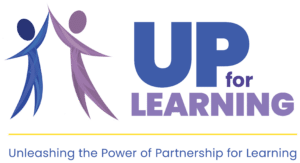What are the qualities of a trusted adult? This question fueled a thoughtful and lively discussion among the students who are a part of Leland and Gray Union Middle and High School’s Restorative Practice team when they met for their third retreat of the year on January 30th. The conversation arose from the responses to the climate and culture survey that the team distributed in December, and which was taken by students in their community. When the team analyzed the results, they recorded the names of teachers whom students had identified as “adults you can talk to.” The names of over 30 faculty and staff appeared on that list, a strength in the data that the team celebrated. After looking at the adults listed, they took part in a circle discussion about the characteristics that they share. They told stories of the support and encouragement they receive from them, and came up with this list:
Understands students’ point of view
Relationships- knowing students as humans
Sharing about yourself as an adult
Help solve problems
Caring, investment
Structure, and also laid back, flexibility
Accommodating what students need
Not afraid to make mistakes, humor
No judgment
The most commonly expressed quality was that these teachers form relationships with their students, and “know them as humans.” This list provides a glimpse into what young people need from the adults in their lives, and the team noted, is what adults need as well! UP facilitators were so impressed by the honest and thoughtful way these students talked about the teachers in their school community.
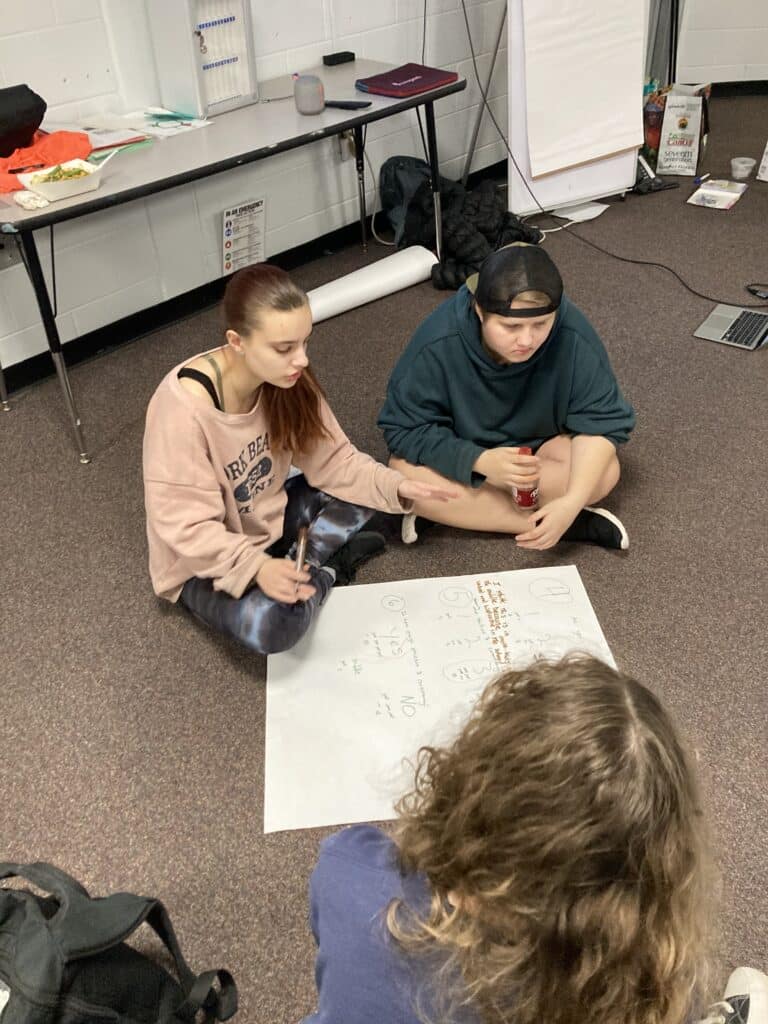
In addition to looking at the strengths of the survey, the team also identified concerns, and the chief one was the harmful jokes and comments often made by both their peers and adults in the building. The group discussed how the high number of students who reported having a harmful comment directed at them was troubling, and that that was the concern they wanted to take action on.
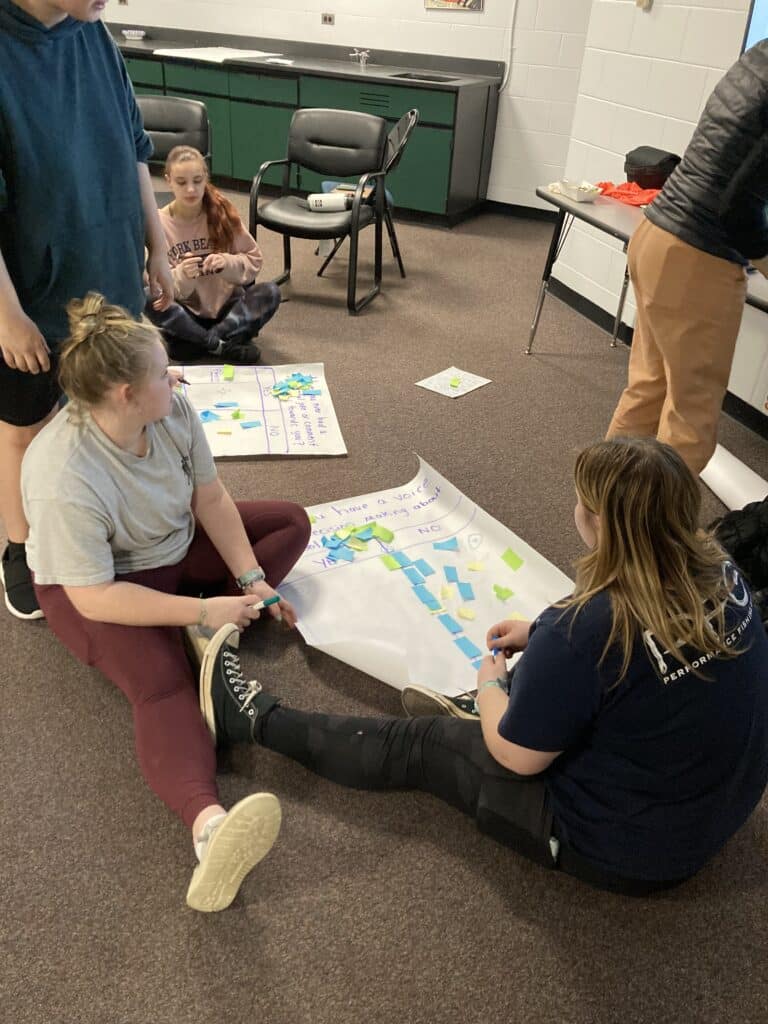
As a first step, the team created a slideshow to share out with the faculty at their meeting, held after school. They included in their presentation some of the results of their survey, and then brainstormed questions that they wanted to ask the faculty to discuss in small groups, including, what is your reaction to the number of students who reported having a harmful comment directed at them? What would an ideal student-adult relationship look and sound like? And, how can we as a school make our students and staff feel safe?
Three high school youth facilitated the faculty meeting, kicking it off with a fun community building activity called “Elephant, Rabbit, Palm Tree.” They then walked the teachers and staff through their survey findings. The room was absolutely silent as the youth were speaking, and all of the faculty were respectful and attentive. It was clear that they were moved by the list of qualities of trusted adults that the students shared, and by the confidence and poise of the youth presenters. After viewing the slideshow, they broke into small groups to discuss the questions.
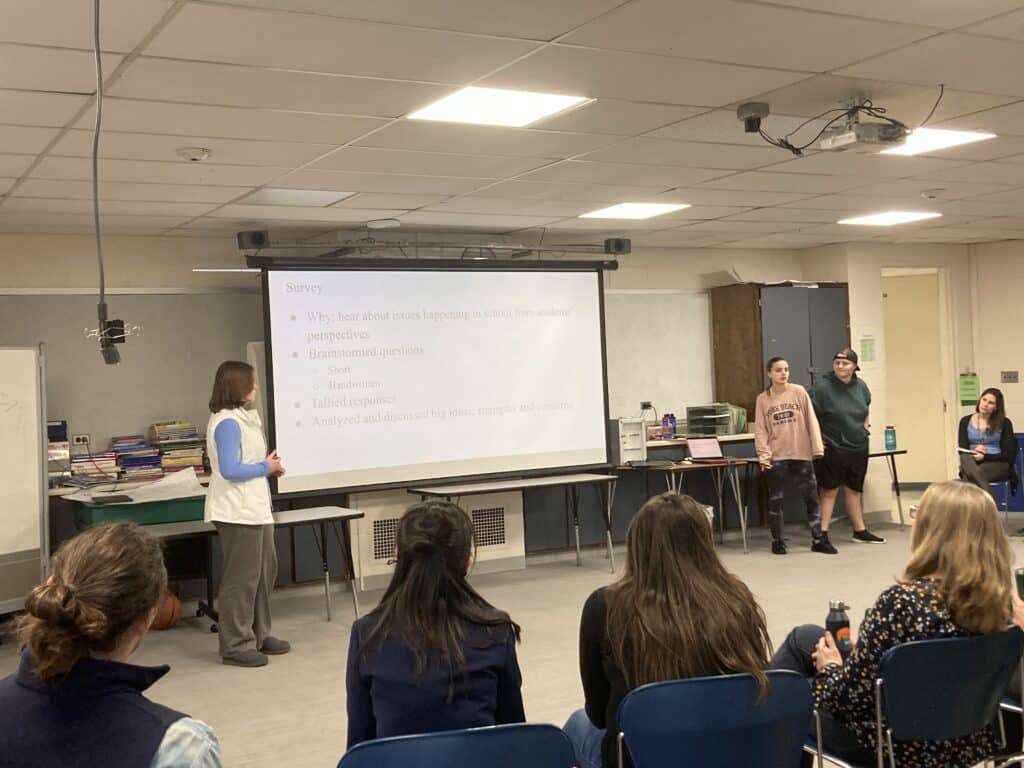
At the close of the meeting, the students facilitated a share-out, and it was clear that the faculty were thinking deeply about all that they had heard and seen. They discussed the idea of intent versus impact, and how they needed to be mindful of how sarcasm can be misinterpreted by students of different ages. Similar to the students’ discussion during the retreat, it was an incredibly thoughtful conversation that revealed the deep level of care in the Leland and Gray community.
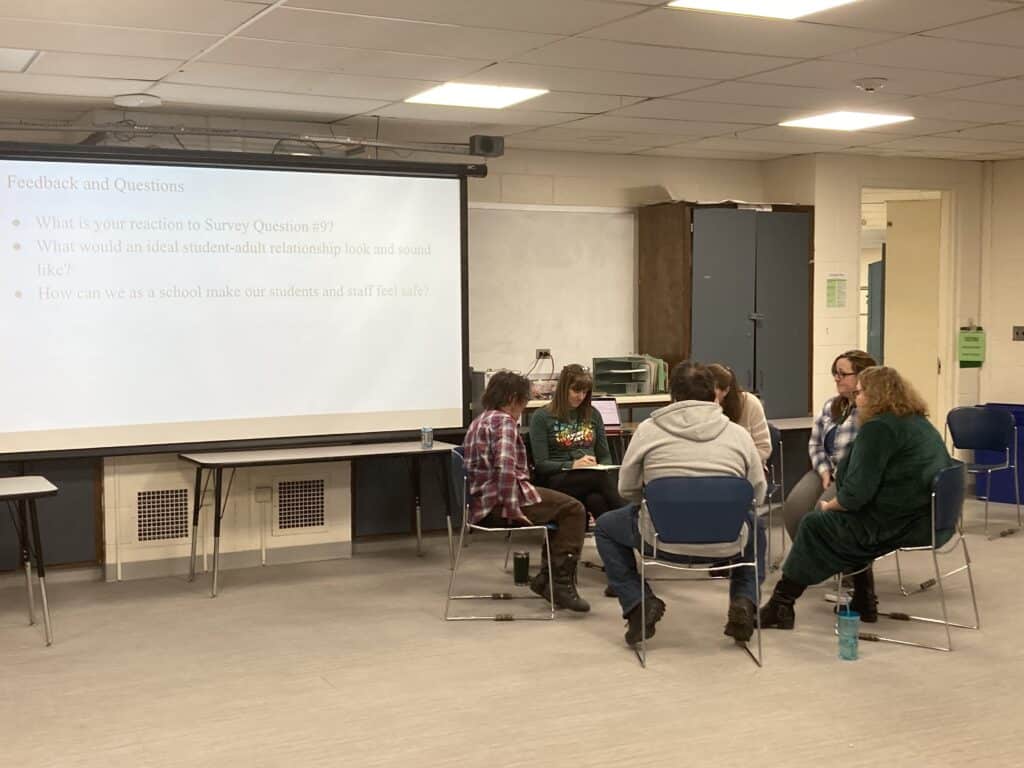
UP is so proud of this team for all of the hard work they did at this latest retreat: reviewing survey results, analyzing the data, putting together a powerful presentation, and facilitating a faculty meeting. We know that they have already had an impact on their school community, and look forward to further action planning when we meet again in March.

